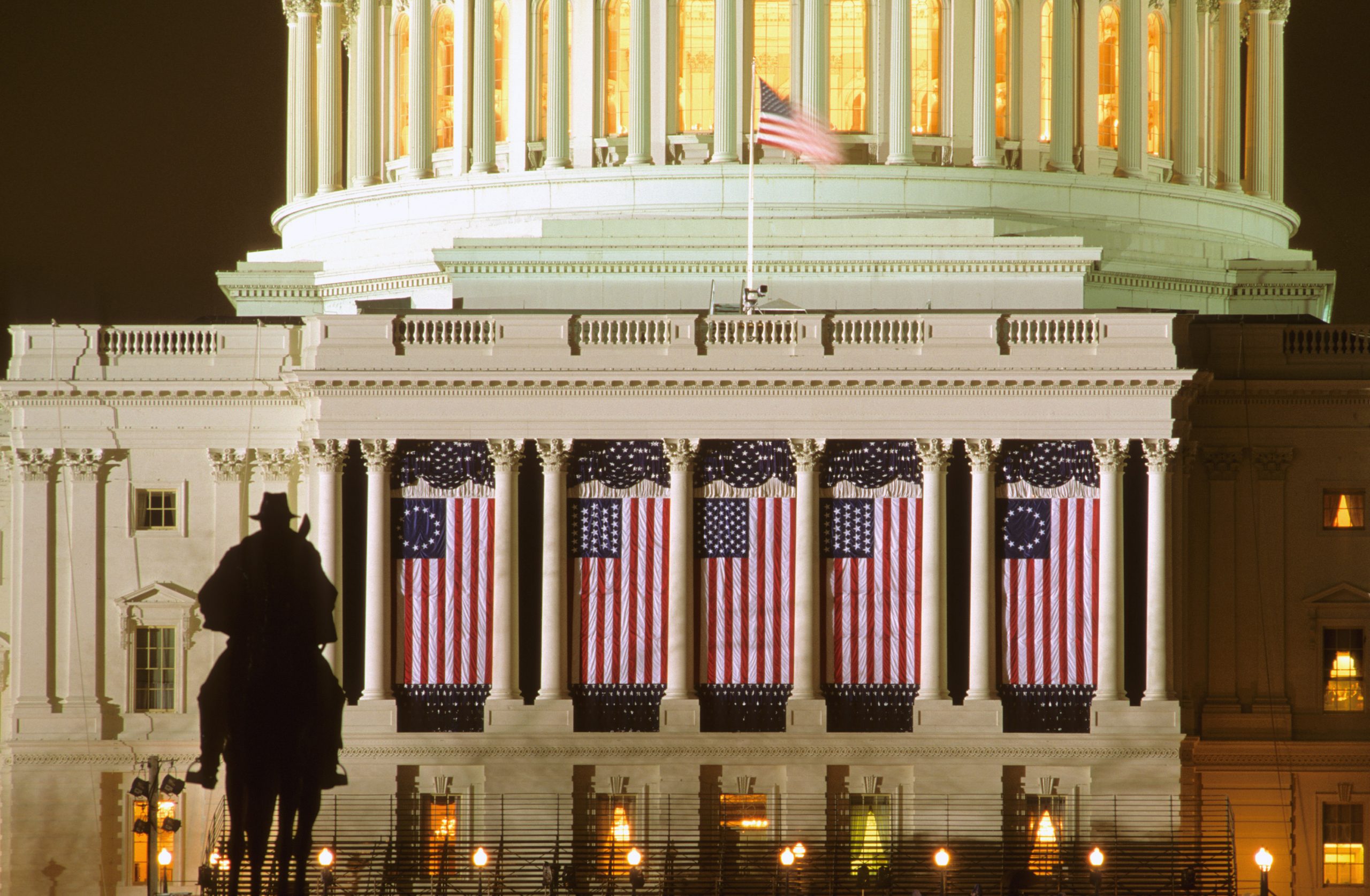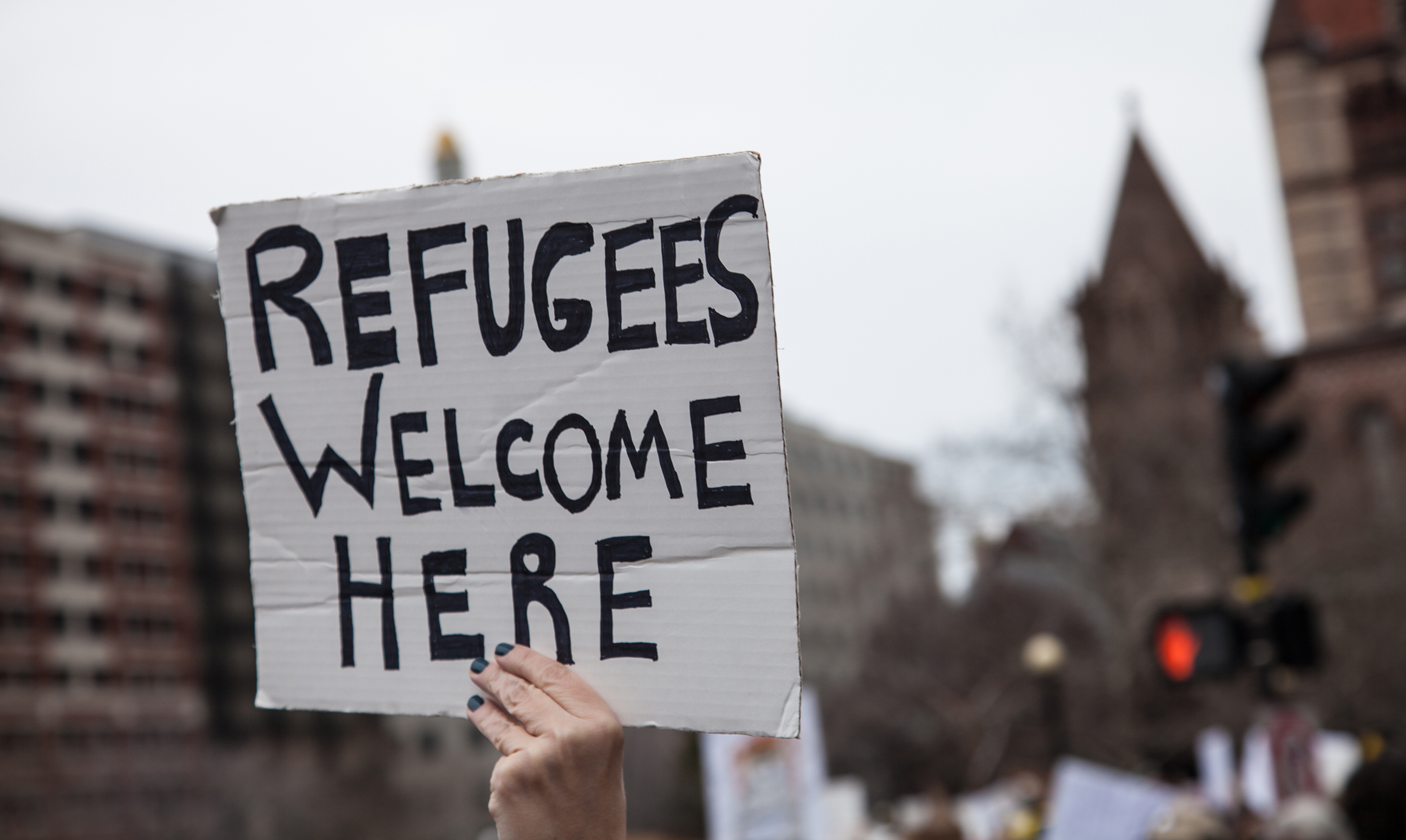Part of “Stewards of Democracy,” a series on findings from the 2020 Democracy Fund/Reed College Survey of Local Election Officials
With growing recognition of the importance of diversity, equity, and inclusion, organizations across many economic and government sectors have been re-examining the makeup of their teams. Diversity has known benefits to decision making and innovation, and in the administration of a representative government, it is arguably essential to carrying out the values of, as well as building trust and engagement in, a diverse constituency. The representative bureaucracy model, for example, argues that with diversity in the workplace, the public is better represented in administrative decisions. As the American population becomes increasingly multiracial and multiethnic, a governmental discipline whose workforce does not reflect the country’s diversity may indicate that it is constrained for some reason in its appeal or its recruitment pipeline. Related, a lack of diversity in an area of public service raises ethical concerns about whether all Americans have genuine access to that office.
In this post, we present information on diversity in the local election community, focusing primarily on the demographic categories of gender and race/ethnicity. It will surprise few familiar with this community to learn that the average local election official is white and female and that this description has not changed in some time. We suggest some possible explanations for this enduring demographic profile and also spotlight some of the nuances of a complex election system that could challenge efforts to increase its diversity. To take just one example, over half of local election officials are elected to their positions, as are other local officials, so candidate recruitment and voter choice also shape these demographics. Some jurisdictions require that candidates for this role reside in the local area, further limiting the pool of potential candidates.
Finally, there is an important caveat to our findings. Our survey focuses on the single official in charge of election administration within each jurisdiction. We know nothing about the composition of their staffs, which may be more diverse and may, in medium and larger offices, be the public’s main point of contact. From other research, we know a bit more about the racial makeup of poll workers, and that having more poll workers of the same races as voters can improve voter confidence. Interactions with staff and volunteers in the election process who better reflect local diversity may reduce some concerns about representation and enhance legitimacy and confidence.
There is much more to learn. In the final section of this post, we identify some outstanding questions about staff, mobility, and recruitment as important research areas for the future.
A Little-Changing Demographic Makeup
Who are the professionals doing the day-to-day work of running American elections? As we touched on in a preceding post, local election officials are not a population that mirrors the American public. The average local election official is far more likely to be white, a woman, and over age 50 than the general public, or even the voting-eligible public, which skews whiter and older.
The 2020 Democracy Fund/Reed College Survey of Local Election Officials found that almost 75 percent of these officials are over age 50, 80 percent are women, and over 90 percent are white (and non-Hispanic). Almost half had a college degree or even further education, and 44 percent identified as Republican — compared to 33 percent who identified as Democrat and 22 percent who described themselves as Independent (among the 72 percent of respondents who shared any party identification). Only 45 percent make more than $50,000 a year, and 60 percent are elected to their positions.
Before diving into this post’s exploration of gender and race/ethnicity diversity in particular, it’s helpful to understand the demographic stability among local election officials over the past 15 years, as well as a few areas where we see changes.
To do this, we look to three years of our own survey data and that of three surveys from the mid-2000s conducted by the Congressional Research Service (CRS). While changes observed over time can provide important information about developments in the community of local election officials, we warn against overinterpreting small changes in consecutive surveys, which may be due to sampling variability rather than to actual demographic shifts.
With this in mind, we see notable patterns since 2004. First, there is almost no movement in the racial diversity of chief local election officials. With the exception of our survey in 2020, all other mentioned surveys found that about 95 percent of officials were white. There is also minimal change in the proportion who are elected to their position, female, and Republican (or conservative, in the CRS surveys).
The patterns of race and partisanship are in part explained by the decentralized and federalized nature of election administration and the jurisdictions where local election officials come from. While local election officials as a collective do not reflect the diversity of our nation as a whole, they do tend to be more representative of their jurisdictions.
Where we do see notable changes are in age, education levels, and pay rates. In 2020, 74 percent of local election officials are over age 50, compared to 62 percent in 2008. In 2020 dollars, over 60 percent of local election officials were earning more than $50,000 in 2008 compared to just 45 percent now; apparently, their salaries have not kept pace with inflation. Finally, formal education is on the rise. Half of local election officials in our most recent survey reported having a college degree, compared to only 40 percent in 2004.
The race and partisanship of local election officials changed little over six years of surveys
| Demographic |
2004 |
2006 |
2008 |
2018 |
2019 |
2020 |
| Female |
75% |
77% |
76% |
85% |
83% |
81% |
| White and non-Hispanic |
94% |
95% |
94% |
95% |
94% |
90% |
| College |
40% |
41% |
44% |
46% |
51% |
50% |
| $50,000 or more* |
53% |
61% |
63% |
43% |
46% |
45% |
| 50 or older |
63% |
62% |
62% |
77% |
74% |
74% |
| Republican† |
51% |
47% |
44% |
— |
43% |
44% |
| Elected |
65% |
58% |
53% |
— |
58% |
57% |
*CRS surveys reported salaries greater than $40,000. Due to inflation, $40,000 in 2006 is approximately $50,000 in 2019.
†CRS surveys reported whether respondents considered themselves to have a conservative ideology, rather than asking about a partisan identification.
Women and Local Election Administration
When we look across the entire U.S. political landscape, we find durable patterns of under-representation of women in public roles. Recent research shows that women currently hold 27 percent of U.S. Congressional seats, 31 percent of state legislature seats, and 30 percent of statewide elected offices, and only 32 of the 100 largest U.S. cities have women serving as mayor. According to 2019 Equal Employment Opportunity Commission data, only 42 percent of county or local officials and administrators are women.
Yet, among local election officials, over 80 percent are women. Why do we see such a different gender composition of local election officials, more than half of whom are elected to their posts, compared to other elected and appointed office holders? There are at least three possible explanations.
First, election work may be filtered by gender in ways similar to other offices in government. For example, a national survey of municipal clerks found an even higher proportion of female clerks (90 percent) than we found in our survey of local election officials. Meanwhile, women make up only 1 percent of sheriffs in the U.S. Even district school boards, which are often perceived as more aligned with women’s interests, have just 44 percent of their seats held by women. Election administration has increasingly become a complex administrative occupation with a diverse skill set. But elections work may have been traditionally viewed as a more clerical role, particularly the registration component. Women may have been directed toward or been more willing to accept positions in election administration. We also note that, historically, some of the more important roles in the conduct and adjudication of elections has been assigned to roles dominated by men, such as sheriff or judge. These patterns may account for the historical and current gender balance of the profession.
A second possibility is a gatekeeping effect among local party leaders combined with the structures that help candidates win elections. In this scenario, women would be differentially allowed “through the gate” to run as local election officials, possibly because elections work is unlikely to translate into higher office. As a potentially related point of reference, our survey asked local election officials if they have an interest in running for elected office (different from their current role, if elected). Overall, only 11 percent indicated they were interested, a number that drops to 9 percent among only female respondents. We lack good comparative data on other local elected offices to conclude that these totals are high or low and whether gatekeeping is going on.
Third, elections work may be sought out by women and less so by men for some reason. It could be that elections administration, especially in smaller offices, offers flexibility that supports a better balance between work and responsibilities at home, which other studies report still fall disproportionally to women in American society. While this may seem to be a surprising notion to local election officials who have just completed an incredibly time-consuming election year, women who responded to our survey were somewhat more likely than men to say that they can balance work and home priorities. Of note, women in larger offices were more likely to tell us that work-life balance was a problem than were women in smaller offices. What we are seeing in these findings may not be a preference among women, but rather a signal that they are more often forced to balance priorities because of fewer career options or cultural norms and expectations.

Gender Differences by Jurisdiction Size
The responsibilities of a local election official vary greatly by the size of the jurisdiction, and not surprisingly, so does the “average” local election official. Those in larger jurisdictions are significantly more likely to be men, non-white, college educated, paid more than $50,000 a year, Democrats or Independents, and appointed to their positions than those in smaller jurisdictions.
Local election officials in larger jurisdictions are more likely to be male, less likely to be white
|
|
Jurisdiction by number of voters |
| Demographic |
Overall |
0 to 5,000 |
5,001 to 25,000 |
25,001 to 100,000 |
100,001 to 250,000 |
>250,000 |
| Female |
81% |
84% |
85% |
69% |
65% |
47% |
| White and non–Hispanic |
90% |
90% |
91% |
89% |
93% |
80% |
| College |
50% |
43% |
55% |
58% |
77% |
82% |
| $50,000 or more |
45% |
23% |
69% |
80% |
98% |
95% |
| 50 or older |
74% |
77% |
70% |
66% |
68% |
61% |
| Republican |
44% |
44% |
50% |
42% |
30% |
17% |
| Elected |
57% |
64% |
54% |
36% |
32% |
18% |
Being the chief elections officer in a larger jurisdiction often has more prestige. It often requires more steps up the ladder or winning what is likely a more competitive and expensive election — all of which may influence the gender of those chosen or self-selecting for such a position. Large-jurisdiction positions are also more likely to involve stresses that challenge work-life balance. Indeed, local officials serving in larger jurisdictions were less positive on the question of balancing work and home priorities.

We see that female local election officials also, on average, earn less than their male counterparts, but these averages may be driven at least in part by jurisdiction characteristics. That is to say, the observed pay differences between men and women may be a function of differential pay by jurisdiction size combined with men’s greater likelihood to serve in larger, better-paying jurisdictions.

Despite this disparity, a majority of local election officials, male and female, told us that they were satisfied with their pay. Women were slightly more likely to raise concerns about pay, but not markedly so.

Women are over-represented overall in our data — and in any survey of local election officials — primarily because of the number of small jurisdictions. It may be that women find the role attractive in these smaller jurisdictions because it is more likely to be part time, supporting work-life balance. It may also be that the nature of the work in a small jurisdiction is perceived to be more appropriate for women through the lens of traditional gender roles, as misguided and outdated as these perceptions may be. Perceptions that operate within thousands of counties and municipalities nationwide would have a powerful effect.
This brings us to a concern: If work-life balance is a key factor in women’s participation as local election officials, threats to that balance could cause a shift in gender composition. The 2020 election created some cracks in the veneer of job satisfaction. If this continues, the cost/benefit calculation could shift, and so could the demographics of the local election community.
“I would recommend [becoming a local election official to others] … I think as long as you have a good understanding of what you’re heading, and what you’re in for, and you have a plan for that, you can have a life balance with family and friends and work. You need to have a plan for that. Then yeah, I would still recommend it.”
– LOCAL ELECTION OFFICIAL, OCTOBER 2020
Race, Ethnicity, and Representative Bureaucracy
Next we explore racial and ethnic under-representation. Approximately 90 percent of local election officials are white and non-Hispanic. That is substantially more than the proportion of white, non-Hispanic people within the U.S. citizen voting age population, according to data from the 2020 Congressional Election Survey (CES). This difference persists even when we compare local election officials to other state and local officials and administrators. Just under 78 percent of state and local officials and administrators across the country are white according to 2019 U.S. Equal Employment Opportunity Commission data.
Local election officials are disproportionately white when compared to the general population
| Demographic |
Proportion of local election official population |
Proportion of U.S. public (CES, 18+) |
| Female |
81% |
52% |
| White and non-Hispanic |
90% |
69% |
| College |
50% |
41% |
| $50,000 or more |
45% |
51% (family) |
| 50 or older |
74% |
49% |
| Republican |
44% |
40% |
| Elected |
57% |
— |
Drawing any conclusions about the reasons for these patterns is a challenge for our study because there are so few non-white respondents in our survey. In the subsequent figures, we have pooled the three years of the Democracy Fund/Reed College Survey of Local Election Officials so as to make some comparisons. We also use “white” to refer to the white and non-Hispanic population.
As a first cut, it’s important to recognize that a vast majority (70 percent) of local election jurisdictions have a citizen voting-age population that is over 90 percent white, according to the most recent American Community Survey. Three-quarters of the smallest jurisdictions have voting age populations that are 93 percent or more white, while 50 percent of the largest jurisdiction have populations that are 65 percent or less white. As a point of comparison, the citizen voting age population in the United States overall is 68 percent white.

The reason these numbers come out the way they do is that non-white voters in the United States are relatively concentrated in metropolitan areas and certain states and regions. To illustrate how this works, we randomly selected one voter from each jurisdiction to be a local election official. The result was that our hypothetical workforce of local election officials was still 88 percent white — nearly the same as the 90 percent that we observed in our survey.
The federalized and decentralized nature of election administration (and many other governmental functions) combined with some jurisdictions’ requirements that election official candidates be local residents creates a structural barrier to a more diverse and nationally representative population of local election officials. Efforts to diversify this field may require extra emphasis on recruiting job applicants for staff positions, leadership positions, and candidates from outside the jurisdiction. What we don’t know — and where we think more research is necessary — is how these structural barriers impact local government more generally, and whether and how some local governmental agencies have overcome these barriers.
If we flip our lens and look from the perspective of voters, the situation appears a bit different. Our survey, combined with Census data, shows that non-white voters are somewhat more likely to be served by non-white local election officials.
The majority of white local election officials serve predominantly white jurisdictions. Black local election officials serve a much more racially and ethnically diverse population. Because of small numbers, we combined local election officials in other racial categories (including Native American, Asian American, and Hawaiian or Pacific Islander) and find they too serve a more diverse population. The starkest under-representation in our data is among Hispanic local election officials: We find so few that we are unable to compare these officials with jurisdiction populations.

The size of the jurisdiction once again appears to drive much of these dynamics. Smaller jurisdictions are less likely to have significant populations of non-white voters — and are also more likely to be served by white local election officials.

The overall population of local election officials is significantly more racially homogenous than the voting age population, but local election officials who are not white do serve more diverse populations. Here our survey sheds further light: When we asked if election officials “should work to reduce demographic disparities in voter turnout,” 80 percent to 90 percent of non-white local election officials responded in the affirmative — almost twice as high as white local election officials asked the same question.

For Further Research
As we have described, understanding diversity and enhancing representation among local election officials and their staffs is a complex undertaking. There are many potential reasons for the findings we report here, and further research is needed to reveal complexities and patterns more completely, to understand the reasons behind them, and identify productive steps. We look forward to engaging the practitioner and research community on these questions in the months and years ahead.
We are limited in our ability to investigate some of the potential reasons for the gender and racial disparities we found due to the limited number of officials who are non-white overall and across jurisdiction size categories, but more broadly, due to the inherent limits of survey sampling for a population of 8,000 officials spread across states, counties, and townships and municipalities. Qualitative research involving focus groups and in-depth interviews may be necessary to probe how current officials, those who appoint them, and even those who vote for them, think about the role of a local election official as compared to other local offices.
One complexity we confront in this post is whether or not the overrepresentation of women in local election administration is a good thing, given the traditional underrepresentation of women in positions of power, especially in elective offices, or whether it indicates that women are being channeled to an area of local governmental work that has been historically undervalued and underfunded. Our suspicions, based on our data and other patterns of gender representation in local government more broadly, is that both are somewhat true. There is some evidence that job mobility is lower for women than for men in the election community. Among the local election officials we surveyed who serve in jurisdictions with greater than 100,000 registered voters, 45 percent of men said they have worked in another election jurisdiction, while only 20 percent of women answer similarly. Overall, 18 percent of men say they have worked in more than one jurisdiction versus 13 percent of women. It remains important for further research to explore if these differences result from barriers to upward mobility, filtering by gender, or other factors.
Also with respect to gender, we believe future research should focus on understanding the personal experiences and pathways for local election officials across their careers. While our study is informed by various theories on why women are over-represented in this field, interviews and discussions with local election officials could better explore the dynamics that result in a role overwhelmingly served by women. Turning to race and ethnicity, as noted, our research is focused on the person holding the chief local election official position. While the individual in this role can be influential, we also know that the race and ethnicity of the rest of a local government office staff matter. Further research on the composition of local election office staff and volunteers could better detail the diversity and inclusion of these offices, as well as voter experience.
We were able to show that non-white officials are more likely to be serving in communities with higher percentages of non-white voters, but the still-high level of homogeneity indicates that the elections community, especially in smaller jurisdictions, has too narrow of a recruitment pipeline. Describing the career pipeline, highlighting successful efforts that have been made in expanding recruitment pools, and understanding who constitutes the pool of staff and elections officials of the future are all fertile areas for research.
If the elections community seeks strategies for encouraging diversity in its ranks, it will need to wrestle with the multiple paths that people take to assuming this role. A heavy reliance on elections as a selection method in the smallest jurisdictions puts a damper on hiring-based methods for promoting diversity in a profession, and efforts to bolster diversity may require coordination with former elected positions and political parties (if the races are partisan).
Efforts to expand and diversify the pipeline for service in local election administration will need to take into account substantial structural barriers due to the federalized and decentralized nature of American election administration and the significant gaps in pay, prestige, budgets, and administrative powers between small and large jurisdictions. We know from conversations with officials that state recruitment rules or residency requirements may be one barrier. But we do not know the steps local election offices take to broaden their recruitment for all positions, and if diversity and inclusion is something they focus on in these hiring practices. Related, larger jurisdictions are well positioned to hire an internal candidate like a deputy director who has been “training up” through the department for several years, or to run nationwide recruitment searches for new officials. Still, the vast majority of jurisdictions are not running national-scale job searches for an open position.
In a previous post, we more deeply discussed the age of local election officials, which is another important aspect of their demographic makeup. These professionals are older as a group than they were even 15 years ago, while at the same time being better educated yet earning comparatively less. Age and pay satisfaction are two things that can cause local election officials to leave the profession. How do decreases in compensation, especially in combination with the increase in qualifications that we also see, affect who sticks with the job or moves on? What is, in fact, the “normal” rate of retirement of officials after a presidential election, and how does the rate of retirement in 2020 compare? Further research pursuing these questions will fuel a robust dialogue about what the future of local election administration should look like in the United States.
There is much yet to learn about how recruitment and advancement in election administration helps or hinders diversity. Our 2020 survey findings point to challenges here, as well as potential opportunities. This is just the beginning of the data-driven story, and we hope to see future research engage these questions.
The authors wish to thank Bridgett A. King, associate professor of political science at Auburn University, for her feedback on this research.





